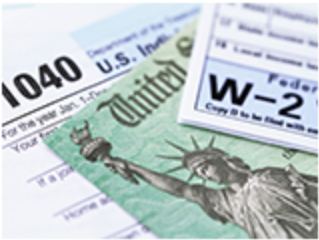 If you’re one of those people who only think about taxes from January through mid-April, you might want to reconsider your strategy and use these four tips, especially if you missed important tax-related deadlines.
If you’re one of those people who only think about taxes from January through mid-April, you might want to reconsider your strategy and use these four tips, especially if you missed important tax-related deadlines.
Document all income. Even though your employer might send you tax information about your income, it’s a smart idea to keep track of the income yourself. Once you deposit a paycheck or have one automatically deposited, immediately document the amount. That way when tax filing season comes, you won’t have to dig through your file cabinet for the numbers.
Save receipts. One of the ways to prevent the IRS from hitting you with potential penalties due to mistakes is to save your receipts. These receipts can help you accurately deduct expenses from your account.
Keep previous tax returns. When preparing future tax returns, keeping previous returns can help you streamline the process. It’s best to keep the returns for at least three years and at most seven if you claim bad debt deductions or worthless securities.
Pay attention to deadlines. Whether you have someone file your taxes for you or you do it yourself, it’s important to know when the filing deadlines are. Set reminder notifications one week before the due date for each filing requirement to make sure all the information is recorded and delivered on time.
Tax season might seem intimidating, but that could be because you’re not fully prepared. By following these four tips, you can streamline the process and stay on top of your taxes to avoid paying fees or penalties for filing late. If you have further questions about taxes, reach out to a trusted financial advisor who can give you the guidance you need.
Sources: Successtaxrelief.com, Taxrise.com, Kiplinger.com
We are ready to help you find the best possible mortgage solution for your situation. Contact Sheila Siegel at Synergy Financial Group today.







